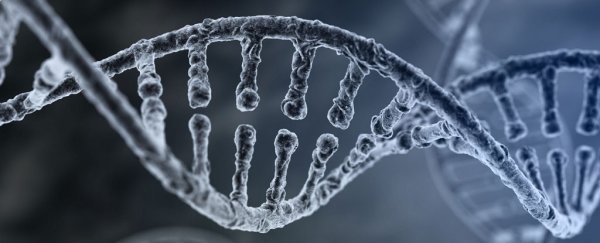Scientists are one step closer to using CRISPR gene editing on humans, with a US federal advisory panel approving the use of the technique for a study led by the University of Pennsylvania.
The scientists are seeking to use the CRISPR-Cas9 technique to create genetically altered T cells – white blood cells that play an important role in our immune system – that are more effective at fighting cancer cells in patients with melanoma, multiple myeloma, and sarcoma.
"Our preliminary data suggests that we could improve the efficacy of these T cells if we use CRISPR," lead researcher Carl June told the National Institute of Health's (NIH) Recombinant DNA Advisory Committee (RAC) on Tuesday.
In the proposed early-stage two-year trial, June and fellow researchers will use a process called the CAR T-cell treatment on 18 patients. The team will extract the patients' T cells, genetically edit them with CRISPR – which enables scientists to effectively cut, copy and paste select fragments of DNA – and then reinject them into the patients, where they'll hopefully be better at targeting and destroying tumour cells.
"Our goal is to develop a new type of immunotherapy using gene-editing technology that will enable the engineered immune cells to be more potent, survive longer, and thereby kill cancer cells more effectively," the scientists told the RAC.
The NIH panel – the focus of which is biosafety and ethics – approved the use of CRISPR for the study unanimously, with one member abstaining. If the research now goes ahead, it will be funded by the Parker Institute for Cancer Immunotherapy, founded this year by internet billionaire and Napster co-founder Sean Parker.
"It's an important new approach. We're going to learn a lot from this," one of the panel members, clinical oncologist Michael Atkins from Georgetown University, told Jocelyn Kaiser at Science. "And hopefully it forms the basis of new types of therapy."
But while the technique shows promise, the researchers acknowledge that it's still an experimental treatment and not guaranteed to work. "[Our previous] efforts have been hampered because the infused T cells become exhausted and die or cease to function," the scientists told the RAC.
Also of concern are the ethical implications of giving a green light to the use of CRISPR on humans, which some fear could open a Pandora's box leading to unwarranted genetic manipulations and things like designer babies.
"Genetic modification of children was recently the stuff of science fiction," said Pete Shanks, a consulting researcher with the US Centre for Genetics and Society, at an international summit on gene-editing last year. "But now, with new technology, the fantasy could become reality. Once the process begins, there will be no going back. This is a line we must not cross."
Others say the way that the CRISPR technique will be used by the University of Pennsylvania researchers is anything but controversial, likening it more to gene therapy.
"From an ethics perspective, I don't think it makes any difference," Henry T. Greely, a legal researcher from Stanford University who specialises in bioscience, told Matthew Herper at Forbes. "It's not anything new, it's just the normal ethics of trying to do gene therapy."
For its part, the NIH is not unaware of the ethical issues posed by CRISPR editing and its application to people, which is one of the reasons the RAC exists, to review these kinds of protocols.
"Researchers in the field of gene transfer are excited by the potential of utilising CRISPR/Cas9 to repair or delete mutations that are involved in numerous human diseases in less time and at a lower cost than earlier gene editing systems," the NIH's Associate Director for Science Policy, Carrie D. Wolinetz, wrote on an NIH blog last week. "While the application of new gene editing technologies in this field has great potential to improve human health, it is not without concerns."
In any case, the researchers will now need to secure approvals from other organisations before they can actually begin the study – including the Food and Drug Administration (FDA), the medical centres where the trials will be conducted, and their own institutions.
It could be some time before we finally find out just when this trial might see the light of day, so watch this space.
